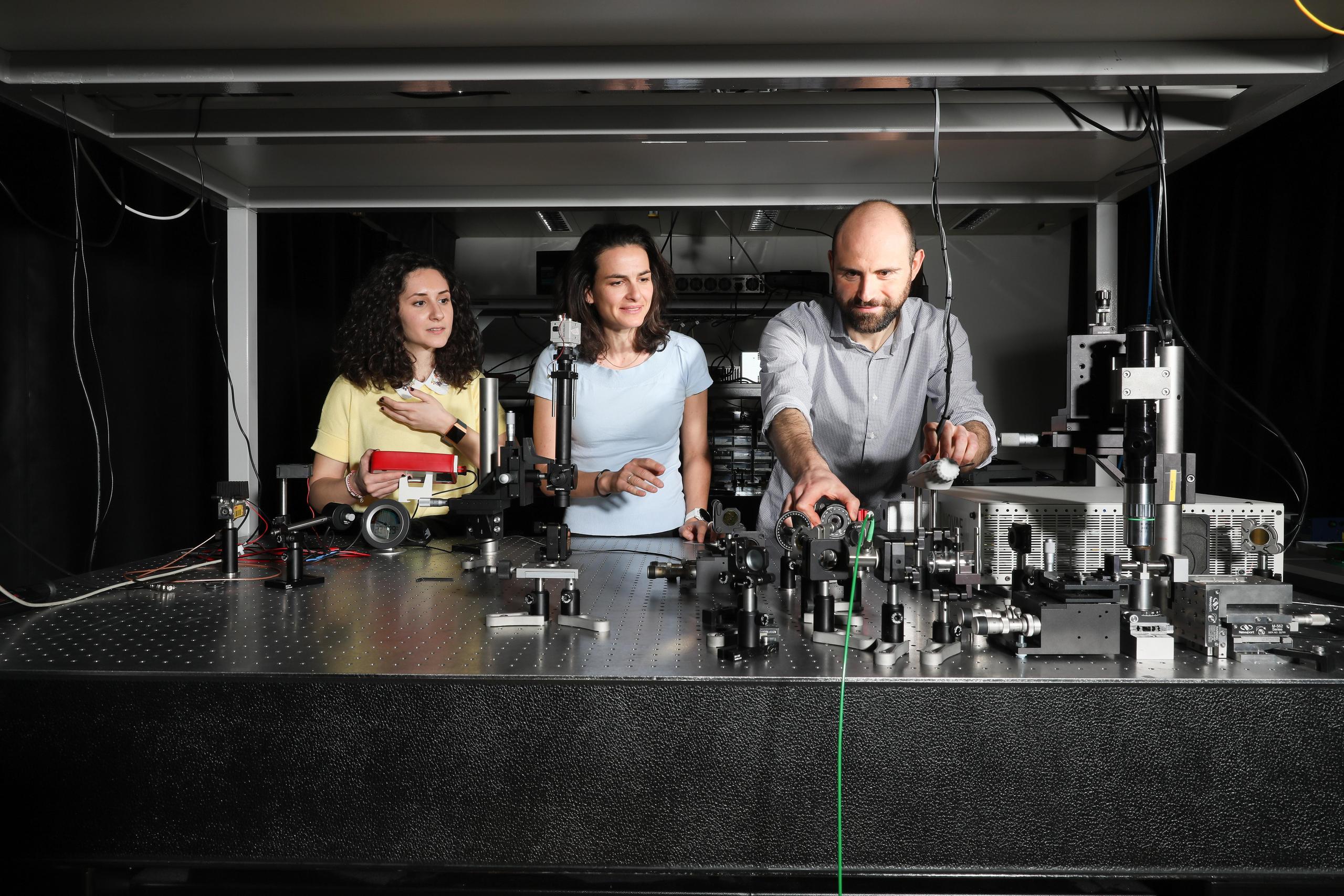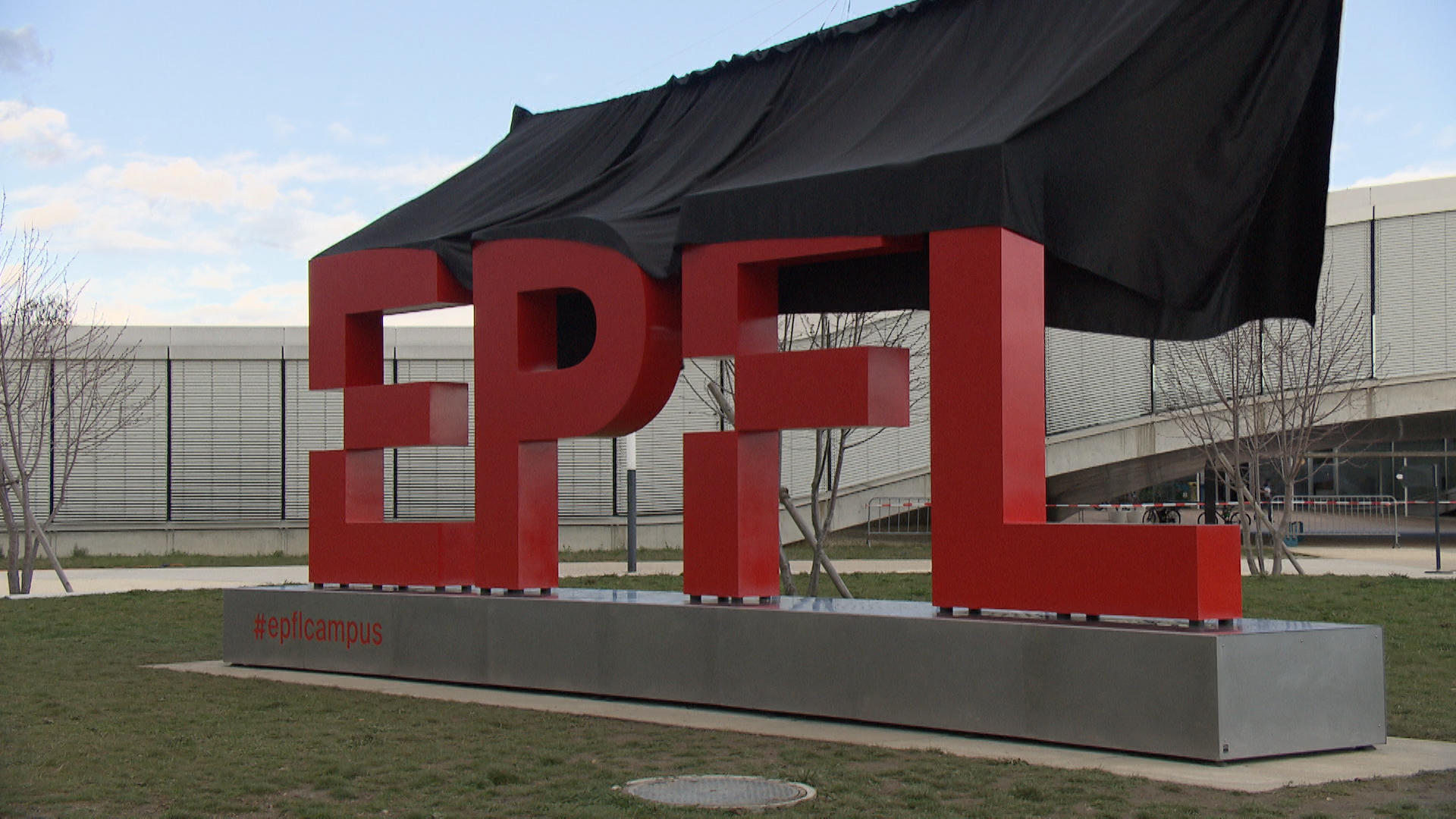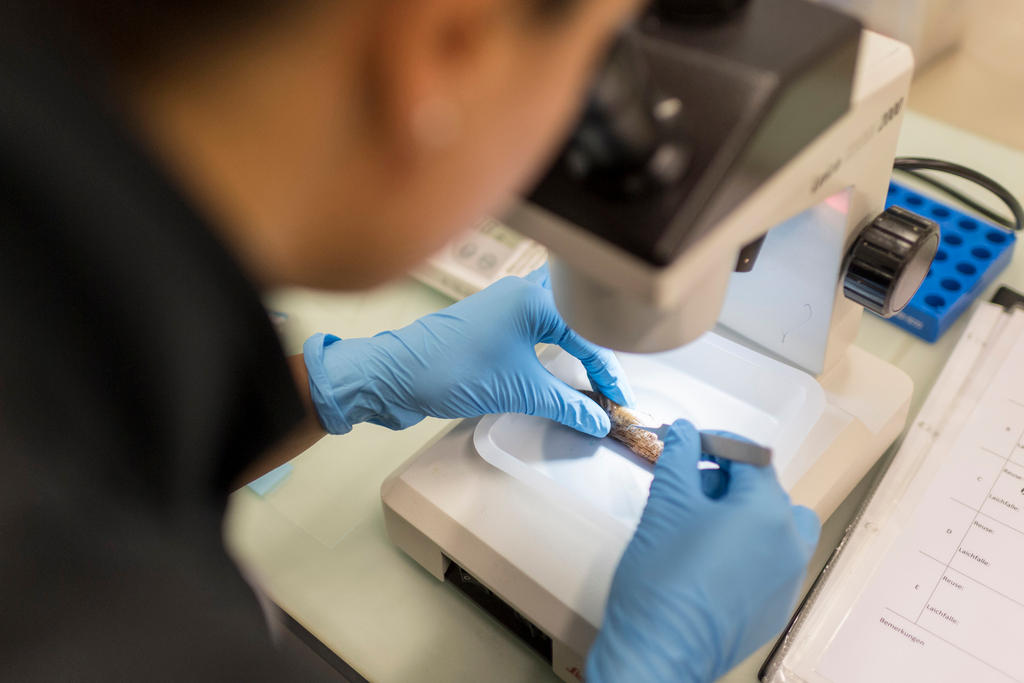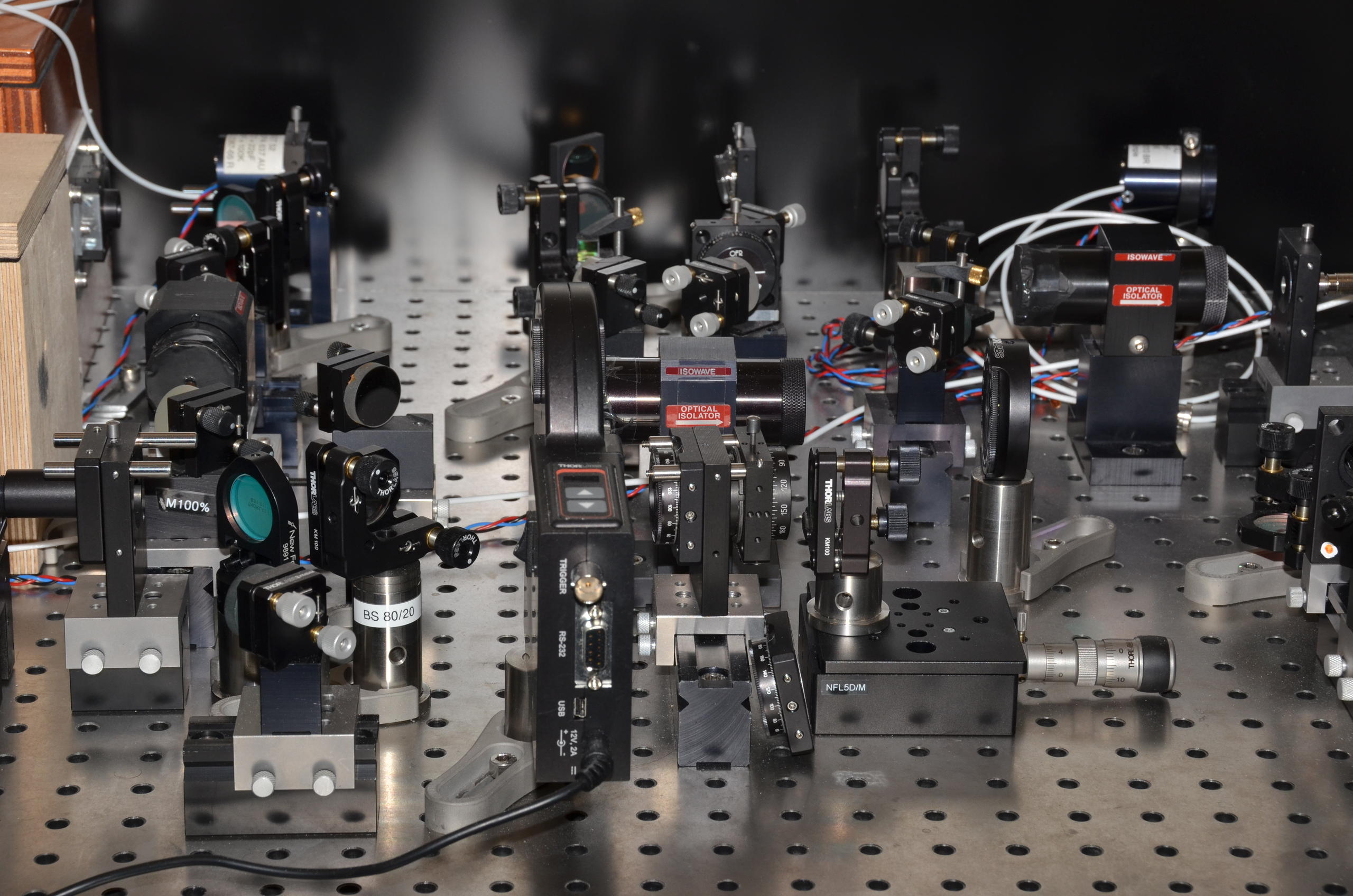Scientists invent laser source to detect pollution

Researchers in Lausanne have developed a simple mid-infrared laser source that can be used to detect pollution in the air or molecules in someone’s breath.
The new technology, developed by scientists at the Federal Institute of Technology in Lausanne (EPFL), consists of a laser with a photonic chip measuring just a few millimeters across and the advantage is that it can fit in a tiny suitcase.
Their research was published recently in Nature CommunicationsExternal link.
To create the compact device, the team combined a commercially available fiber laser with a micrometer waveguide chip to generate light waves in the mid-infrared spectrum. They then added a spectrometer to demonstrate the potential of this light source, successfully detecting the presence and concentration of acetylene, a colorless and highly flammable gas.
The mid-infrared spectrum used allows scientists to detect a range of particles in the environment, greenhouse gases or even human breath.
“This device sets a new benchmark for efficiency,” said EPFL researcher Davide Grassani. “This is the first time anyone has created a fully integrated spectroscopic laser source. It does away with the painstaking process of precisely aligning all the parts in a conventional laser system.
Their discovery paves the way for miniaturized mid-infrared technologies.
“Once we’ve developed the system further, we could well see on-chip detectors that scientists can easily carry out into the field,” said Camille Brès, project coordinator and head of the Photonic Systems Laboratory, which belongs to EPFL’s School of Engineering.

More
EPFL marks 50 years of scientific progress

In compliance with the JTI standards
More: SWI swissinfo.ch certified by the Journalism Trust Initiative



You can find an overview of ongoing debates with our journalists here. Please join us!
If you want to start a conversation about a topic raised in this article or want to report factual errors, email us at english@swissinfo.ch.